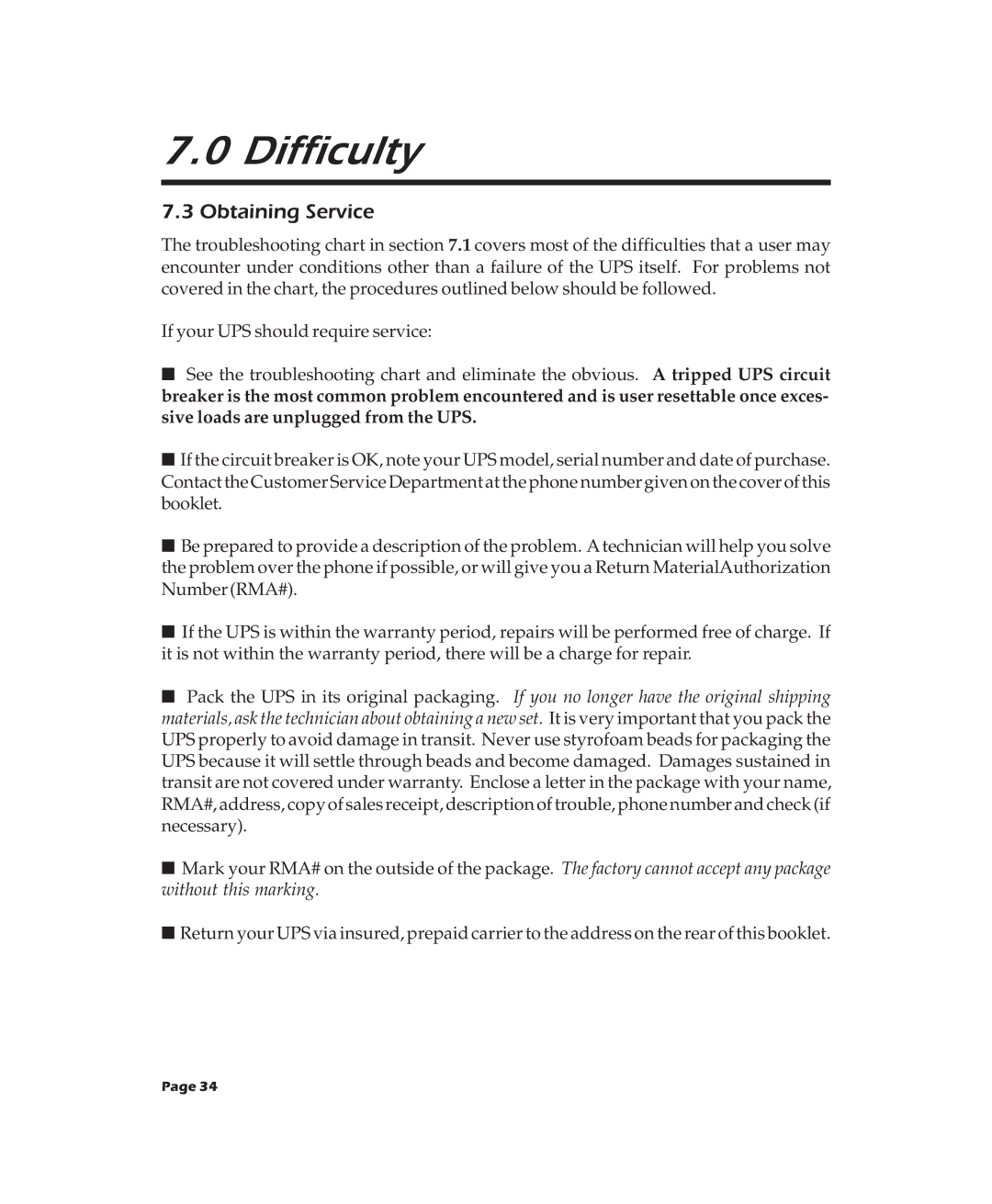7.0 Difficulty
7.3 Obtaining Service
The troubleshooting chart in section 7.1 covers most of the difficulties that a user may encounter under conditions other than a failure of the UPS itself. For problems not covered in the chart, the procedures outlined below should be followed.
If your UPS should require service:
■See the troubleshooting chart and eliminate the obvious. A tripped UPS circuit breaker is the most common problem encountered and is user resettable once exces- sive loads are unplugged from the UPS.
■If the circuit breaker is OK, note your UPS model, serial number and date of purchase. Contact the Customer Service Department at the phone number given on the cover of this booklet.
■Be prepared to provide a description of the problem. A technician will help you solve the problem over the phone if possible, or will give you a Return MaterialAuthorization Number (RMA#).
■If the UPS is within the warranty period, repairs will be performed free of charge. If it is not within the warranty period, there will be a charge for repair.
■Pack the UPS in its original packaging. If you no longer have the original shipping materials, ask the technician about obtaining a new set. It is very important that you pack the UPS properly to avoid damage in transit. Never use styrofoam beads for packaging the UPS because it will settle through beads and become damaged. Damages sustained in transit are not covered under warranty. Enclose a letter in the package with your name, RMA#, address, copy of sales receipt, description of trouble, phone number and check (if necessary).
■Mark your RMA# on the outside of the package. The factory cannot accept any package without this marking.
■Return your UPS via insured, prepaid carrier to the address on the rear of this booklet.
Page 34
